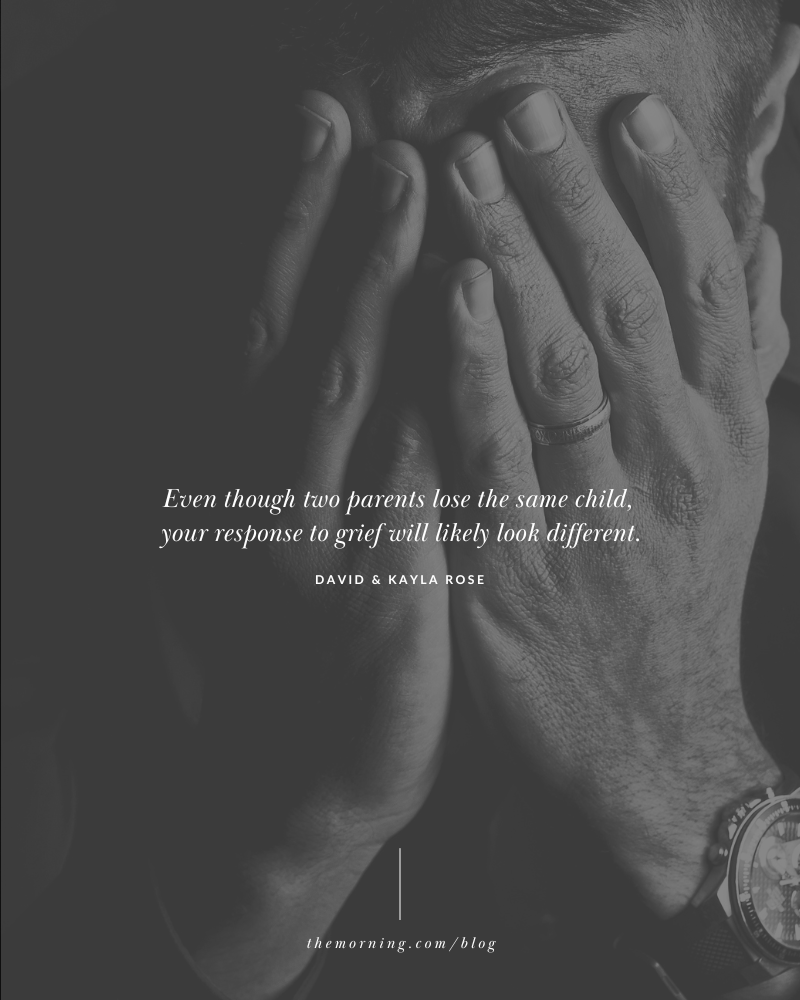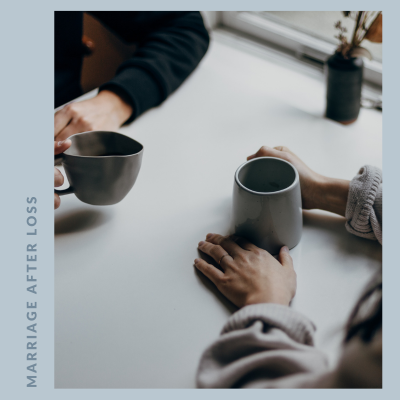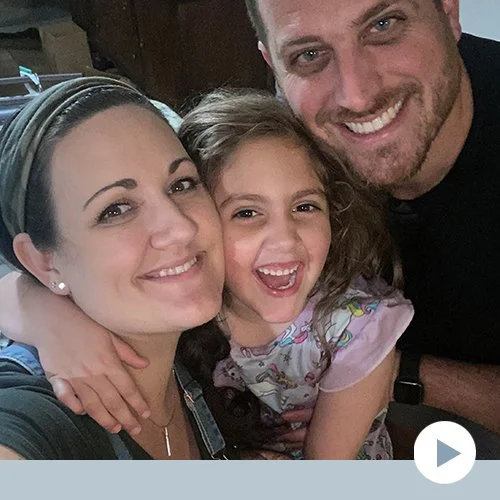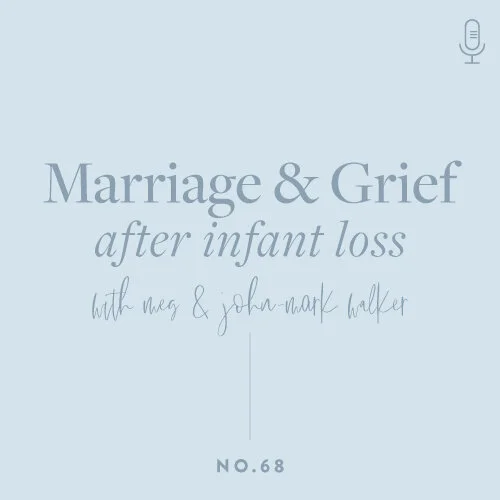Grieving Together While Grieving Differently | Q&A with a Grieving Couple
David & Kayla Rose
Editor’s Note
Every grieving couple is different and even within a marriage or relationship, each person grieves differently. This month we want to highlight real grieving couples who have experienced the loss of a baby in hopes that it gives you the feeling that you are not alone in your grief and that you can continue to love and support each other in the midst of your grief. Come back next week for Part II of David & Kayla’s Q&A.
Tell us about your family.
We have two children. A three old living with us here on Earth, and our second little boy Jace who lives in Heaven. In November of 2021, we unexpectedly lost Jace due to intestinal malrotation and volvulus. This is a condition where the intestines do not rotate like they should in the first trimester of pregnancy and then can become twisted. This twisting, restricts blood flow to the intestines, and if not corrected leads to intestinal death.
To say that Jace’s death was unexpected is an understatement. His pregnancy was totally normal and everything appeared as if he was completely healthy, and we had no reason to suspect anything differently. On the day he was born we had our 37 week appointment and I let my doctor know that I had noticed a decrease in his movements and from that moment our lives changed forever. Jace was born via emergency c-section a few hours later. The next day we discovered that he had complete intestinal death, and we chose palliative care to assist him to Heaven. We were blessed to have our sweet boy with us on Earth for three days. Despite the circumstances we will always be thankful for those three days, because it provided us, our parents, and siblings the opportunity to spend time with him before he passed.
What was grief like in the early days? What is your grief like now?
Kayla: In the early days of grief, life was literally a fog for me, and I felt like I stayed in a fog until about six months after Jace’s death. Thankfully our oldest son kept me going, and even when I felt like I was just going through the motions, I still desired to be the best mom I could be for him. Since I knew nothing about malrotation prior to his death, I joined various groups on Facebook just to seek understanding about the condition and to see if there were any other moms like me who had lost a child in this way. I desperately wanted to understand and put a “why” to my suffering - especially, why this had happened to us. Early on I also longed to breastfeed him, especially since I had a successful breastfeeding journey with my oldest. In response to this desire I pumped for the first five weeks after his death and donated his milk to Mother’s Milk Bank. This was probably one of the most therapeutic things I did in the beginning of my grief journey. A year and half later, grief is very different for me. It is so hard to imagine in the early days that grief will ever feel any different than the present pain and fog you are experiencing. While time doesn’t heal anything, time and my faith has allowed me to learn how to cope with our loss. I find now that I can talk about him and his death easier than before.
Dave: In the early days grief felt like intense pain and helplessness. For your child to be in such a terrible, dire position and have no way possible to help is the most painful thing a man could ever experience. When it happened, there was no way to understand or explain why I had to go through such a terrible hardship. Even though you try to lead a good life, you are not exempt from tragedy. Grief now mostly consists of a lot of “what ifs” and “what could've been”. Watching our oldest son play, I can only imagine little man Jace following his brother around tormenting him, wondering what brotherly bond could have been formed if only he was still here. The more time that passes, I do find that I am able to somewhat reason and understand the things that have happened.
What brings you comfort in your grief? How do you typically express your grief?
Kayla: Being a Christian, the comfort that I find in my grief is the promise of eternal life in Heaven for believers in Jesus Christ. Since I can remember I have been fascinated with near-death experiences and books about the experiences individuals have had in Heaven. After Jace’s death I found the most comfort in books discussing Heaven. Two of my favorites are Imagine Heaven by John Burke and Within His Gates by Rebecca Springer. I wonder all the time what Heaven is like for him currently and what Heaven will be like for our family when we are finally reunited there. Worship music and exercise have also played a role in helping me to deal with the emotions that accompany grief.
Dave: The thing that comforts me in grief is knowing there are worse things than death in this life. With my job as a respiratory therapist, I deal with many end-of-life situations and see pain and suffering on a daily basis. Knowing there is a heaven that awaits us, having a strong faith in Christ, and knowing I will get to be with Jace someday keeps me going. As far as expressing grief, I wouldn’t say I do that in any certain way. I’m quiet by nature so I internalize all my thoughts and feelings. I guess I express it by withdrawing and keeping to myself.
What has been the most surprising thing about grief for you individually? As a couple?
Kayla: The most surprising thing to me about grief is learning that it is very individual. Even though two parents lose the same child, your response to grief will likely look different: the situations after that may trigger a grief response from you can be completely different for your spouse. For example, in the early days of my grief receiving mail concerning Jace was hard for me. I want to be specific in saying that cards from family and friends never bothered me at all. I am forever grateful for the love and kindness that was shown to us after his death. However, unnecessary mail such as the hospital sending us repeat hearing screen notices, the health department sending a HANDS enrollment notice, and a letter from someone trying to “witness” to me after reading his obituary was difficult. I finally had Dave start checking our mail. Going back to my doctor's office the first few times and seeing boy siblings were all extremely hard. Whereas for Dave, going back to work and being back in the hospital was hard, but going back to work was okay for me.
Dave: The most surprising thing about grief is the overwhelming emptiness. Jace was with us for only 3 days, but every day feels like something is missing. Even with my wife and son here, it’s still an unexplainable emptiness that I don't understand. To miss someone you never knew so badly has been hard for me to process.
How has your loss impacted your relationship? How has it grown/ what has been challenging?
Kayla: Jace’s death changed our entire lives and the way we perceive everything that happens to us in life. As a couple, it brought us closer together than I ever could have imagined. Individually we couldn’t have made it through this without the other. As a couple, the most challenging part of this in our relationship for me has been having to watch Dave suffer knowing that at times he wasn’t showing what he was feeling in order to try to be strong for me.
Dave: This has only made us stronger as husband and wife. Kayla and I are very open and honest with each other. To share our hardest and deepest feelings hasn’t been a difficult thing. Being in such a vulnerable state has only amplified and grew my appreciation for our relationship. Having someone in your life that understands your struggles, but also sacrifices parts of themselves to help you through it is invaluable.
Meet the Author:
David & Kayla Rose
We were high school sweethearts and have been together for 17 years. We both work in healthcare, and have a small farm and raise cattle. We have two children. A three old living with us here on Earth, and our second little boy Jace who lives in Heaven. In November of 2021, we unexpectedly lost Jace due to intestinal malrotation and volvulus. This is a condition where the intestines do not rotate like they should in the first trimester of pregnancy and then can become twisted. This twisting, restricts blood flow to the intestines, and if not corrected leads to intestinal death.
free community
FIND WOMEN UNDERSTAND THIS NEW NORMAL AND WILL PROVIDE HOPE AND HELP AS YOU NAVIGATE YOUR WAY THROUGH IT.













![Life After Baby Loss: Returning to Work, Marriage, Faith & Mental Health [Part 02] | Episode 147 with Megan Gamboa](https://images.squarespace-cdn.com/content/v1/5d8e6e4f37fce41a1f622e01/1643312717792-C7H3C4SZU31U7R4RJ59J/life-limiting+diagnosis+prenatal+terminal+diagnosis+trisomy+13+baby+loss+grief+grieve+christian+carrying+to+term+medical+system+advocate+Megan+Gamboa-1.jpg)

















